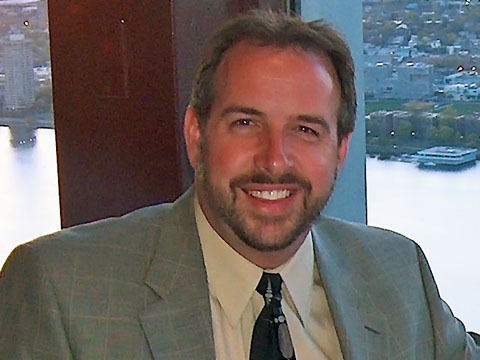Nazarene chaplain ministers through end-of-life coaching

When Nazarene chaplain Don Eisenhauer started working in hospice about 12 years ago, he realized just how unprepared he was to help others address an unpopular, yet crucial topic.
"Our culture doesn't talk much about death," he said. "We're not comfortable with it and it's not taught. I didn't know a whole lot."
Eisenhauer sought training on the subject, but not many organizations offered education in end-of-life coaching. He learned on his own, gaining knowledge through years of research and ministry experience.
Now, as chaplain at TriCounty Home Health and Hospice in Pottstown, Pennsylvania, Eisenhauer counsels the dying and grieving.
One of Eisenhauer's sessions this week included a mother and daughter with some misconceptions about the grieving process.
"After 65 years of marriage, dad died three months ago," the daughter said. "Mom won't stop crying. She doesn't want to leave the house, and sees no reason to keep on living."
During their session with Eisenhauer, the mother explained her sense of loss. She said her feelings were so mixed up that she thought she was going crazy.
"I listened deeply to what she said, telling her that everything I was hearing was normal for one in grief," Eisenhauer said. "I expressed to both mother and daughter how well I thought mom was doing, giving them a new definition for doing well in grief. Mom was relieved to know she was not going crazy, and daughter was thrilled to learn that what her mother was experiencing was normal. Mom now saw hope to move forward in her grief and to learn how to enjoy life again."
In another session, Mike, a man in his late 20's, came to see Eisenhauer. He warned Eisenhauer that he doesn't talk easily to others and has trouble opening up. Mike's father, with whom he has a strained relationship, is dying of cancer and it's painful for Mike to watch.
"They have not shared their feelings, talked openly, or apologized for the ways they've hurt each other," Eisenhauer said. "Mike also has a younger brother who will have to grow up without a father. Mike is currently living in California, where he owns a business. He wonders if he should sell the business and move back to Philadelphia to be a 'father figure' to his younger brother. He asked me what he should do. Rather than giving him answers, I asked Mike questions that helped him search within and come up with his own answers to his dilemmas.
"He openly expressed his feelings about his father dying, and walked away with his next steps in place. He intends to share his feelings with his father. He will take the first steps toward moving back home to his family."
Eisenhauer, who used a "coach" approach with Mike, said he has no doubt that Mike will follow through on his next steps because he took ownership of these decisions.
"Mike told me how amazed he was with himself, that he opened up so much and shared so freely," Eisenhauer said. "He also felt good that he could say the things to dad that he really wanted and needed to say."
Though it took Eisenhauer years to gain expertise in end-of-life coaching due to lack of resources, he is helping others in the field learn at a faster pace.
Eisenhauer now has a Doctor of Ministry degree from Gordon Conwell Theological Seminary. He created his own organization to teach his techniques to others. Accredited by the International Coach Federation, Coaching at End of Life (CEOL) offers training for pastors, lay people, grieving individuals, and others who deal with death.
Training is offered both in person and online. Classes are divided into four modules and are based on Eisenhauer's book, Coaching at End of Life, co-authored with J. Val Hastings. Modules One and Two focus on coaching the dying and coaching the grieving, respectively.
Module Three of the CEOL training is designed for churches.
"Church should be a safe setting for people to grieve," Eisenhauer said. "It's not enough for the pastor to know how to deal with death; the whole church should be involved."
A fourth module allows participants to become certified end-of-life coaches — an opportunity some of Eisenhauer's students have called "a gift."
"I was skeptical about end-of-life coaching until I went through it," said Joseph Hama, a hospital chaplain. "Coaches help others bring the best of themselves to the table in whatever circumstances. Why not help the dying or the bereaved do the same in the wilderness of loss? As a hospital chaplain, I have found the principles of end-of-life coaching a viable utility in my toolbox of vital disciplines often employed with the dying and their families. Don, thanks for this gift!"
For more information about CEOL, visit coachingatendoflife.com.
